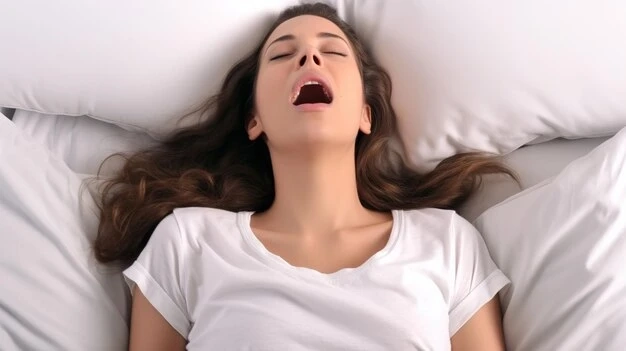Mouth breathing, although seemingly harmless, can significantly impact various aspects of your health, including sleep quality, physical appearance, and overall well-being. Here, we explore the hidden dangers and long-term effects of mouth breathing.
The Impact on Sleep
Poor Sleep Quality: Mouth breathing can lead to fragmented sleep. When you breathe through your mouth, it dries out your airways, causing you to wake up frequently to hydrate.
Sleep Apnea: Mouth breathing is often linked to sleep apnea, a condition characterized by repeated interruptions in breathing during sleep. This results in poor sleep and increased daytime fatigue.
Snoring: Breathing through your mouth can cause or exacerbate snoring, which not only disturbs your sleep but also the sleep of those around you.
Effects on Appearance
Facial Structure: Chronic mouth breathing, especially in children, can alter facial development. It can lead to elongated faces, narrow jaws, and crooked teeth.
Dark Circles and Puffy Eyes: Poor sleep quality from mouth breathing can result in dark circles and puffiness around the eyes, making you look tired and unhealthy.
Dry Mouth and Bad Breath: Mouth breathing leads to a dry mouth, which can cause bad breath and increase the risk of gum disease and cavities.
Overall Health Consequences
Respiratory Issues: Mouth breathing bypasses the nose’s natural filtration system, allowing more allergens and pollutants to enter the lungs, leading to respiratory problems.
Reduced Oxygen Levels: Nasal breathing helps produce nitric oxide, which aids in oxygen absorption. Mouth breathing reduces this process, leading to lower oxygen levels in the blood.
Weakened Immune System: Chronic mouth breathing can dry out the mouth and throat, reducing the effectiveness of saliva, which is essential for maintaining oral health and preventing infections.
How to Prevent and Correct Mouth Breathing
Practice Nasal Breathing: Make a conscious effort to breathe through your nose, especially during the day. You can keep your nasal passages open by using nasal strips at night.
Stay Hydrated: Drinking plenty of water can help keep your throat and nasal passages moist, reducing the urge to mouth breathe.
Address Allergies: Treating underlying allergies or sinus issues can help improve nasal breathing.
Orthodontic Treatment: For children, early orthodontic intervention can help correct structural issues that contribute to mouth breathing.
Breathing Exercises: Practicing exercises like the Buteyko method can help train you to breathe through your nose.
Conclusion
Mouth breathing can have far-reaching effects on your sleep, appearance, and overall health. By understanding these impacts and taking proactive steps to correct mouth breathing, you can improve your well-being and quality of life. If you or your child struggles with chronic mouth breathing, consult with a the best dentist in Dubai to address the underlying causes and find effective solutions.



